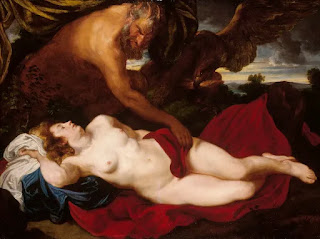to 08.09.24
Like no other region in Austria, the Salzkammergut served as a point of transit and salvage for important works of European art history during the Second World War, including art looted by the National Socialists.
After the first bombing raids, exhibits for Adolf Hitler’s “Führer Museum” and works of art from the Schack art collection in Munich were stored in the Altaussee salt mine and in makeshift depots such as inns and churches. Austrian museums also used a mine, the Franz-Josef-Erbstollen (Franz Josef adit) in Lauffen near Bad Ischl in the Salzkammergut, as a refuge facility in 1944/45.
The exhibition features more than 80 paintings and objects
that were collected, stored, retrieved and rescued in the Salzkammergut during
the war years. All of the items are on loan from public museums, and their
current and historical ownership status is documented in the exhibition.
They include artworks
that were looted by the Nazis and later restituted to their owners, as well as
works of art whose origins are the subject of ongoing provenance research.
Masterpieces from the 8th to the 20th centuries by Arnold Böcklin, Goya, Edvard Munch, Lovis Corinth, Jacob van Ruisdael, Anthonis van Dyck, Giovanni Battista Tiepolo, Max Liebermann, Jakob Jordaens, Titian, Moritz von Schwind and Ferdinand Georg Waldmüller, among others, as well as a historical model of the Ghent Altarpiece tell the stories of their odysseys with many stops along the way.
With the critical intervention Ruinenwert by the sucessful
German artist Henrike Naumann the exhibition is complemented by a contemporary
perspective.
https://www.lentos.at/en/exhibitions/die-reise-der-bilder




No hay comentarios:
Publicar un comentario